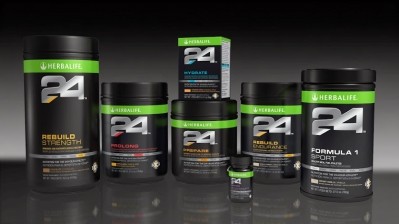Nootropics and SARMs seized in Australia as TGA continues investigation into unlicensed health products

The regulatory body announced that in conjunction with the NSW Police, Australian Federal Police (AFP), Australian Taxation Office (ATO) and NSW Health, it had executed four search warrants for a business operating in Sydney that was suspected of selling unapproved nootropic supplements and selective androgen receptor modulators (SARMs).
The operation was part of an ongoing investigation into the alleged import, advertising and supply of unauthorised therapeutic products; most recently, the involved regulators had seized black salve and blood root supplements.
The seized nootropic and SARM products were not included in the Australian Register of Therapeutic Goods (ARTG), and will undergo laboratory analysis before further action is taken.
The authorities also seized documents, packaging materials, manufacturing equipment and advertising materials.
The harm caused by SARMS
SARMs are a group of experimental synthetic drugs and supplements that are often used illegally in bodybuilding, sports performance, and aesthetic enhancement. They are considered prohibited imports under Australian customs law.
Speaking to NutraIngredients-Asia, exercise physiologist Stephen Burns said: "SARMs produce anabolic effects in muscle and bone. They are typically non-steroidal and specifically target the androgen receptor in muscle and bone without the negative side effects in other tissues that are brought about by anabolic androgenic steroids (AAS).
"These effects include reduction of good cholesterol, prostate enlargement, and effects on the seminal vesicles that produce semen. Thus, they are an attractive proposition to athletes who want to build muscle without theoretically bringing about the harms seen with AAS."
SARMs, however, are not devoid of negative side effects.
Two years ago, the US Food and Drug Administration (FDA) issued a warning on the use of SARMs, saying they were associated with liver failure, and an increased stroke or heart attack risk.
Other reported complications included nausea, pain and jaundice, but information on how SARMs interact with other conditions, medications or health supplements is scarce, meaning that there could be even more health risks yet to be discovered.
Certain products advertised as SARMs may even contain potentially dangerous ingredients like steroids.
Burns said, "There is uncertainty about the long-term use of SARMs because most clinical trials evaluating their use in patients are only in the early stages.
"Without extended clinical trials, their effects in the long-term are uncertain in areas such as liver toxicity and cardiovascular diseases. There are also some anecdotal reports of headaches and nausea with SARM use but it is difficult to evaluate these reports without control groups.
"Probably the most likely effect of SARMs is that they will suppress your body's natural testosterone production — which could lead to lethargy, for example — and effects of reduced testosterone in other tissues."
According to a study published in the Journal of the American Medical Association, only 52% of the 44 SARMs products the researchers had assessed turned out to actually contained SARMs, while 25% of the products contained unlisted ingredients.
Furthermore, some of the products carried a different recommended dosage from that advertised on the online platform, while others were devoid of any active ingredients.
Burns advice for consumers is to be cautious about people claiming that SARMs are harmless. Despite clinical evidence pointing to their potential benefits for a variety of patients (such as those with sarcopenia or osteoporosis), the effects of their long-term use in healthy populations remains uncertain.
Furthermore, SARMs are prohibited by the World Anti-Doping Agency (WADA), and many such supplements also contain other prohibited substances that may or may not be listed.
"Typically, it is best to buy sports nutrition products from well accredited suppliers. If you are an athlete, always have the product tested by an independent laboratory before use," said Burns.
"Moreover, such products should be tried and tested in training, with results monitored over time before they are used in competition."
Nootropic concerns
In an earlier interview, Sarah Benson, a Postdoctoral Research Fellow at Swinburne University’s Centre for Human Psychopharmacology, had told NutraIngredients-Asia: "The mechanisms of action and implications are different for different nootropic substances.
"Typically, enhancers work by increasing blood flow to the brain, but may also alter neurochemicals or stimulate nerve growth".
Often, nootropics come in the form of natural substances like caffeine, Bacopa monnieri, curcumin, ginkgo biloba and Siberian ginseng, but Benson cautioned that claims related to 'natural' ingredients do not guarantee safe consumption.
In addition, despite clinical evidence on certain nutraceuticals being able to enhance cognitive function, their efficacy may vary, depending on ingredient composition and standardisation.
At the same time, the level of regulation between nutraceuticals and pharmaceuticals is considerably different — the lower level of scrutiny to which the former is subjected allows a wider margin for error in manufacturing and consumer usage.
Benson also said that such products could cause side effects such as headaches, restlessness, chest pains and increased blood pressure.
"The nutraceutical industry is worth billions of dollars and has enormous consumer interest. While the efficacy of some products are backed by science, many products lack the empirical evidence suggesting that they do in fact work."


















